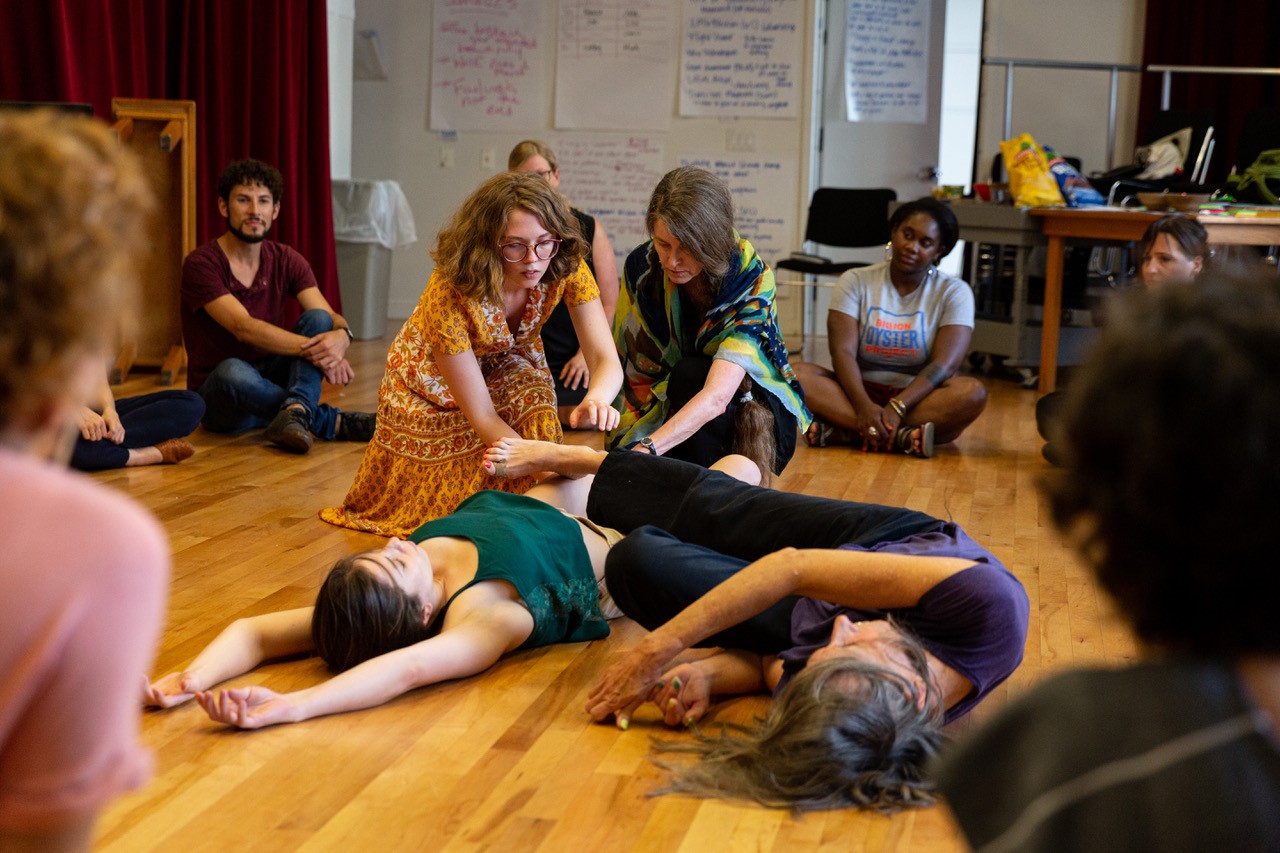
Written by guest blogger Chantal Bilodeau.
So much has been written about what the theatre is and should be. So much has been said about where it might be falling short and where it should be heading. But the one thing we never anticipated, at least in our immediate future, is that the theatre would go dark – abruptly, everywhere at once, and indefinitely. Suddenly, we, theatre practitioners, find ourselves in the middle of a grand experiment; we are forced to imagine theatre without theatre, performance without liveness, connection without presence. As we hunker down to “flatten the curve” of the pandemic and avoid overwhelming our health systems, we have to ask ourselves: What now?
Many companies have adjusted with remarkable speed by shifting their programming online, offering their followers a chance to watch readings of shows that got canceled, productions of previous shows, or inviting them to take part in conversations with their favorite artists. Those more daring performed songs from famous musicals and even reconceived entire plays to be performed on Zoom. And yet, despite these brilliant displays of creativity and adaptability, the theatre’s most defining quality – to be able to laugh and cry and gasp together in a shared space, to feel each other’s breath as we give energy to and receive it from the actors – is missing.
Of course, eventually, our need to social distance will end. It will take time but eventually, there will be a treatment and a vaccine. But once that happens, will we be the same again? As individuals, as societies, and as creative and artistic beings? An event of the magnitude of the COVID-19 pandemic is bound to leave a trail of losses and some deep scars. Many theatre institutions won’t survive – a few I know have already announced that they are closing. I suspect more will follow. In order to make ends meet, artists will bring their skills to other sectors and some of them won’t return to the precarious artistic life. Money will be scarce for longer than we would like.
Yet, one thing is certain. When we emerge on the other side of this forced isolation and distancing, we will all have a story to tell. Our lives will have changed: what we consider important, how we want to spend our time, and who we want to spend it with. And we may very well feel the need to tell our stories to each other, to find solace in them and a renewed sense of purpose. We may also need to grieve together, celebrate life together, and honor those who showed up when they were called. That’s when theatre – the one that happens in the flesh – will be resurrected. Will it look the same as it did before the pandemic? Probably not. Hopefully not, otherwise it would mean that we didn’t learn from this crisis and take the opportunity to grow.

Her latest article in Canadian Theatre Review entitled “The Story of Extractivism” is free to read for a limited time here.
The UTP Journals blog features guest posts from our authors. The opinions expressed in these posts may not necessarily represent those of UTP Journals and their clients.
Comments on this entry are closed.